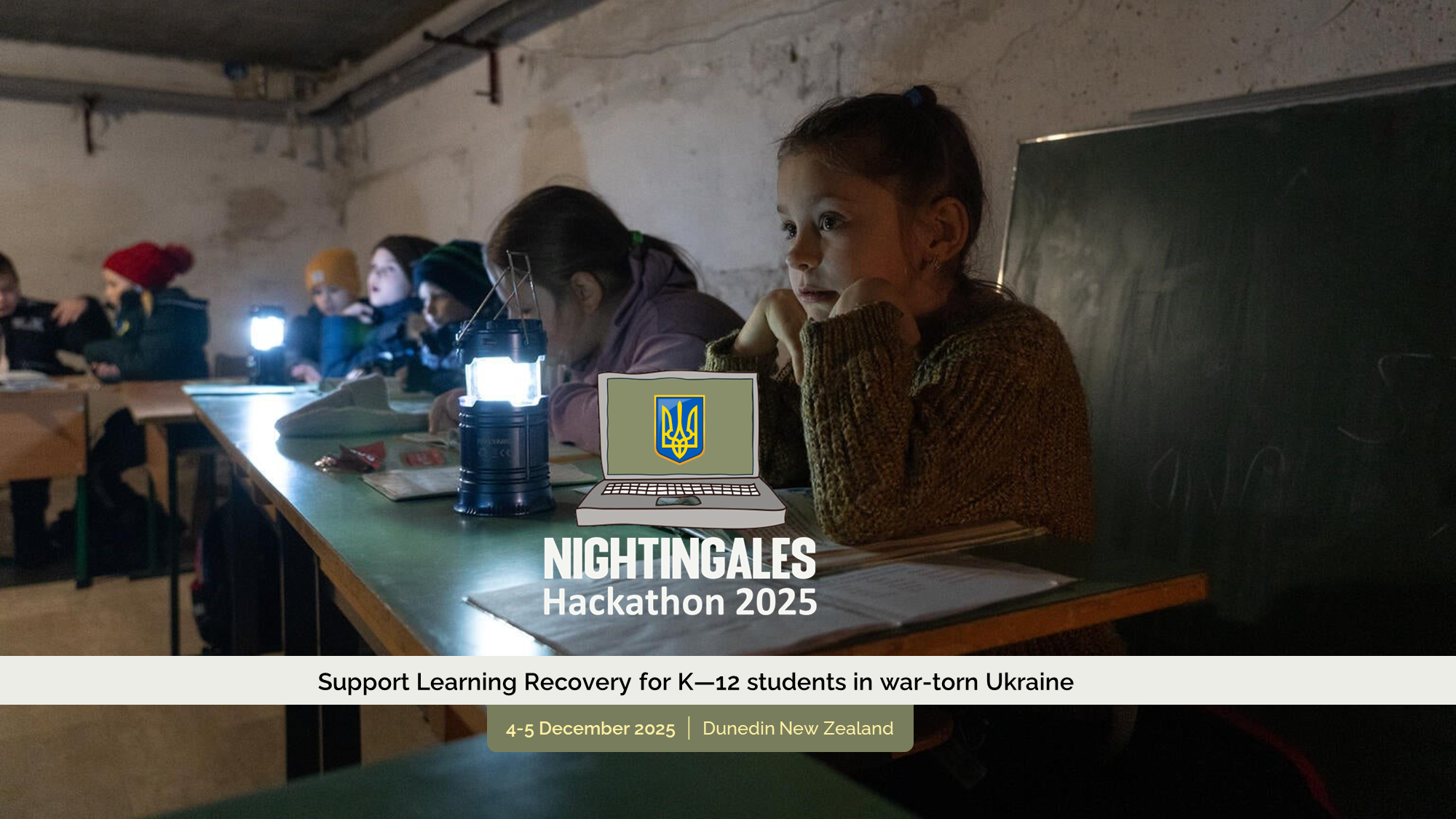
About the Hackathon
Nightingales Hackathon is organised by impact consultancy Eco Shepherd, in collaboration with UNESCO, Ukraine Ministry of Education, and King’s High School, one of the top boys’ schools in New Zealand.
12 of the most innovative EdTech brands from around the world are invited to send teams to the in-person Nightingales EdTech Humanitarian 2-day hackathon, in Dunedin, New Zealand.
The Nightingales Hackathon 2025 is a mission-driven initiative to develop innovative technology-based solutions to support K-12 students in war-torn Ukraine whose schools have been destroyed or relocated to bomb shelters.
The hackathon will start with a detailed briefing by specialists in the situation on-the-ground in Ukraine. These specialists will be available in-person over the two days of the Hackathon to provide any further information required the teams and who will also make up much of the judging panel.
Each team is allocated a Year 13 and a Y9 student from King’s, as representative voices of their peers in Ukraine.
Each team’s submission needs to include an analysis of the scalability and impact of their prototype solution – experts will be onsite to help formulate this analysis for teams if necessary.
Why this Hackathon is important
Ukrainian children are showing signs of widespread learning loss as Russia’s invasion preceded by the COVID-19 pandemic have left them facing a sixth year of education setbacks.
Inside Ukraine, attacks on schools have continued unabated, leaving children deeply distressed and without safe spaces to learn. Not only has this left Ukraine’s children struggling to progress in their education, but they are also struggling to retain what they learnt when their schools were fully functioning, against a backdrop of 3500+ missile strikes on schools since 2022, 400+ schools destroyed, and 21 schools hit by missiles every week.
Statistics from UNICEF indicate an estimated 75% of Ukraine’s 3.7 million K-12 students (primary and secondary) have limited or no access to formal and/or non-formal education; only a third of children of primary and secondary age are learning fully in-person. Another third of enrolled students are learning through a mixed approach of in-person and online, and one-third are fully remote.
Online learning can complement in-person learning and provide a short-term solution, but it cannot fully replace in-person classes, which are especially critical for social development and foundational learning. In times of crisis or war, schools provide far more than a place of learning. They can provide children who have already endured loss, displacement and violence with a sense of routine and safety, a chance to build friendships and get personal help from teachers.



